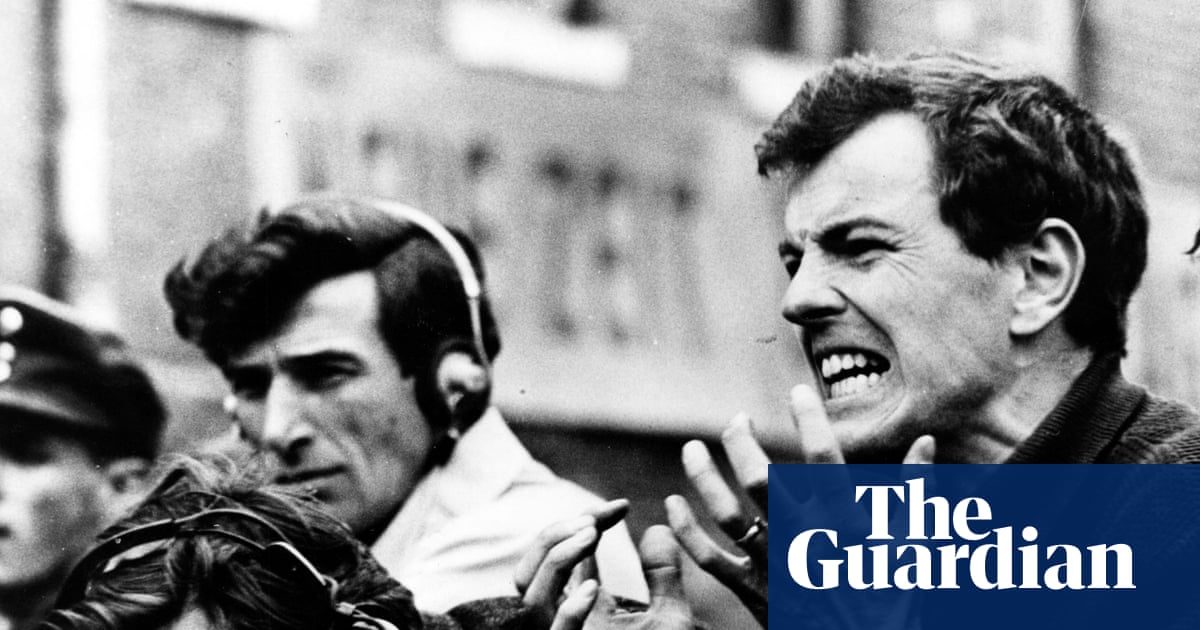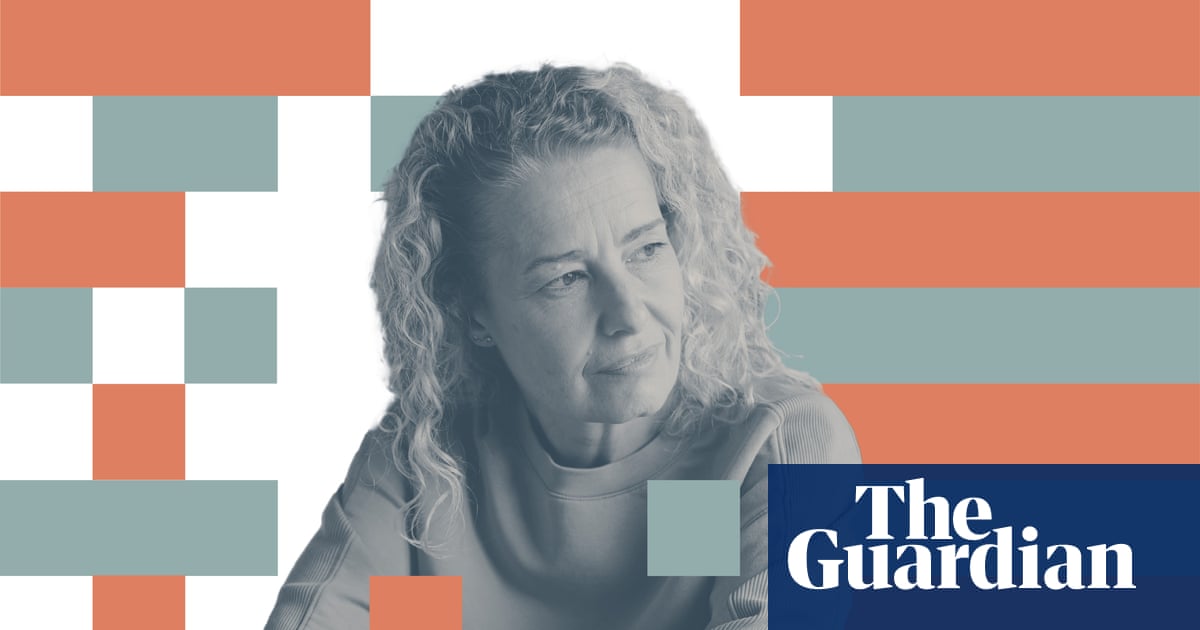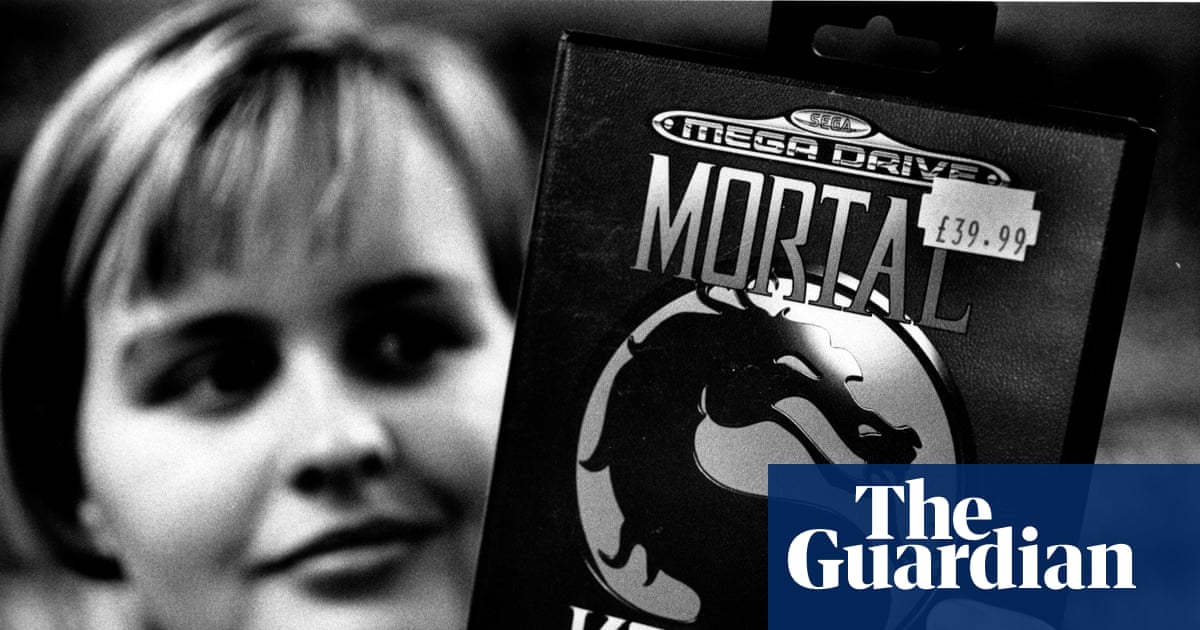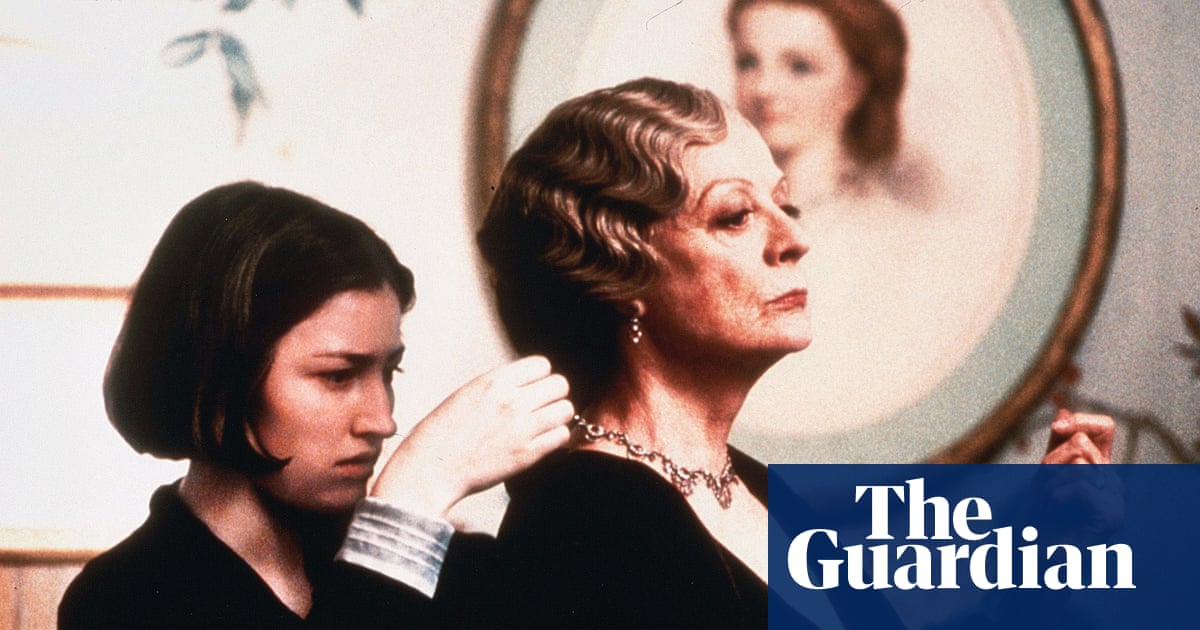When a supreme court judge is a household name, it’s either because they’re very outspoken on a hot topic, or because you’re living in choppy times, and there are so few grownups left among the legislators that the law has to put its hoof down. Brenda Hale, the right honourable Baroness Hale of Richmond (she doesn’t stand on ceremony, but she’d be annoyed if you got it wrong, preferring things to be right) emphatically doesn’t fall into the first camp, but was thrown into the spotlight in 2019. This was when she found Boris Johnson’s suspension of parliament – which meant his government could evade scrutiny in the run-up to Britain’s exit from the EU – unlawful.
Now retired, she was then head of the supreme court and boy could she accessorise. She handed down that ruling wearing a spider brooch with a body as big as a plum, and one headline that week ran: “Spider woman takes down Hulk: viewers transfixed by judge’s brooch as ruling crushes PM.” Johnson, of course, was not crushed, but got his miserable deal through and survived to make a complete, self-serving hash of the next crisis. “I’m not going to make any comment about Brexit,” she says, slightly incredulous that I would ask. I can’t help it, unfortunately. It’s like a tic.
All that feels like a long time ago and far away as we meet at her home in Richmond, Yorkshire, a scene of unshowy comfort and order. Sofas match, light streams in; people rarely raise their voices in this house, one senses. She’s vexed at the rabbits destroying her beautiful garden, but her impatience is inexplicably charming.
Both her stepdaughters live – I don’t want to say “in different wings”, which sounds inaccurately Brideshead – let’s just say, in different parts of the house. Hale lost her husband, the legal academic and QC, Julian Farrand, in 2020. Her new book, With the Law on Our Side: How the Law Works for Everyone and How We Can Make It Better, is dedicated to him, “a fearless fighter for rights and justice”.
“Obviously,” she says of 2019, “we had two cases that were very high profile and attracted a lot of attention, mostly from people who didn’t understand what the cases were about.” One was whether or not the prorogation was justiciable – that is, whether it was right to involve the courts at all. The other was whether it was lawful. “They weren’t cases we had any choice about. We’re flung into these things which happen to have political ramifications, but we’re dealing with something other than the politics.”
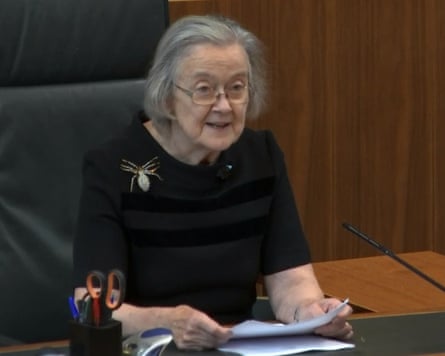
She has now written a how-to book about the law – not how to practise it, but how to love it the way she does. In the first of its three parts, she operates as a kind of secret-shopper, dipping in to the Royal Courts of Justice, a county court in Middlesbrough, benefit and employment tribunals, a family court in central London, saying what she sees. The second section is about our rights under the law, and the third is about how laws get made. Given the two overriding elements of her post-referendum reputation – one, that she is a magnificent spider woman; two, that she will not take sides, politically, by accident or on purpose – it’s a surprise to read from the outset a completely unvarnished critique of government, that “the justice system has been starved of the resources it needs to do the job which we all need it to do”.
She speaks in the distinctive way of a person who is used to having their words transcribed, always knowing when she starts a sentence how it’s going to end. “What I wanted to do was to write a book that said, on the whole, the good things about the justice system and what the justice system can do for people as well as to them. So if you’re writing a book which is mostly about what you think is good, you have to acknowledge the things that are not so good. Otherwise, it’s not fair to the people who are struggling. It’s not fair to the reader.”
It was once taken as given, “often among people who had no direct knowledge of the justice system”, that it was “a site of national pride, the best in the world”. It’s still the case that “the people working in it really care about the system – the lawyers, the staff, the clerks, the prosecutors, the police, the judges. There are a lot of very dedicated people out there.” But the bottom line is, there isn’t enough money, particularly in criminal and family courts, and if it weren’t for those dedicated staff, “the whole thing would fall apart”. Public servants trying to fill the cracks in degraded state services with their own civic duty is hardly breaking news, but it’s pretty off-brand for the judiciary generally, and Hale in particular, to mention it.
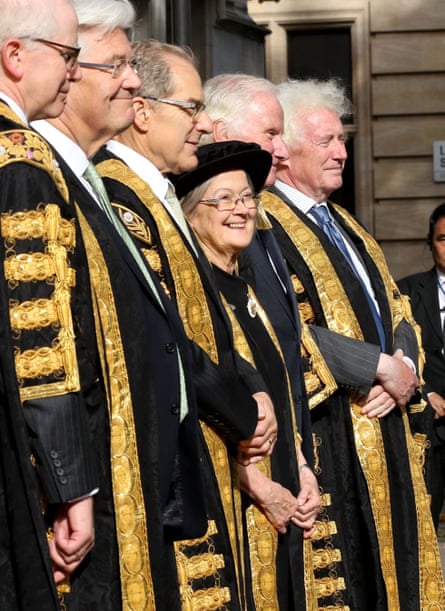
Before she was the first woman to be appointed to the supreme court (in 2009), having been the youngest and first female commissioner to be appointed to the Law Commission in 1984, she was a judge on the family circuit, and has heard some awful things. “Sometimes it has to do with poverty and circumstances, but sometimes it has to do with genuine cruelty. Which people find really difficult to understand or accept, that some people are capable of treating children, especially tiny children, very, very badly.” All judges have had sleepless nights, she says, over assessing risk, especially in families.
“Some of the stories,” she writes, “are quite mundane …” But the abiding atmosphere she creates, describing courtrooms, is not mundanity or anguish, but fascination. Even the most trivial battle – two people crashing on a roundabout, the case hanging on whether or not it was reasonable to enter with one’s view obscured by a white van – is weirdly engrossing, maybe because we’ve all made decisions while obscured by a white van, sometimes multiple times a day. Hale starts, however, in the court of appeal (criminal division), where a set of defendants have been recently convicted of sexual offences they committed some or many years ago. The question is, should they be sentenced according to the tariffs (minimum terms) of today, or to those of the era in which they committed their crimes (secondarily, how do you adjudicate the risk to the public posed by a 48-year-old whose offences were committed when he was 14?).
It was pretty clear to Hale that “you cannot punish people other than the punishment that was appropriate at the time when they did the deeds”, she agreed with the sitting judge. The matter of tariffs per se is more complicated: sentences have gone up for sex offences, maybe because we “appreciate the harm” more, but there’s a potential for counter-productivity there, which they’ve been thrashing out since the 70s. “When I was a second-wave feminist, there was quite an argument about whether the tariff for rape should go up. A lot of people said rape is not taken as seriously as it should be. The counter argument was, with the sort of offences where there’s a slight ‘There, but for the grace of God, go I’ element – people can’t imagine robbing a bank, but they could imagine being accused of rape – the longer the sentence, the more reluctant the jury may be to convict.”
In employment law, “the more rights you give workers, the more ways the world of work is going to find for getting work out of people without actually giving them any rights”. Even while we naturally have our human rights – as children, as disabled people, as LGBTQ+ people, as women, as workers, as patients – the law can enforce the fairness a society has laid down, but there’s a bracing limit to how much it can make things fairer.
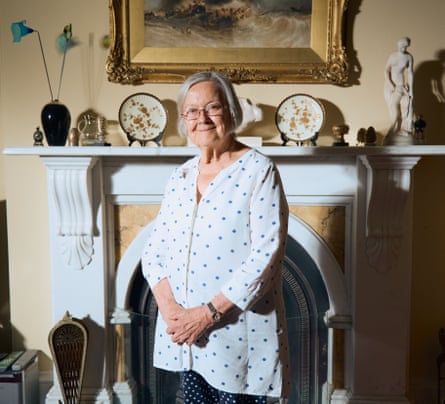
Back to sentencing, though, because tariffs have gone up for everything. That’s “the main reason for the surge in the prison population”, she says, and it’s been a ratchet effect. “There are politicians, clearly, who want to be seen as tough on crime. There’s a public perception that there’s more crime than there actually is. There are certainly pressures from the media which the politicians pay attention to. And there will be other reasons as well, which have led to a relentless upping of the tariff, across the board.” All of which would be fine, if that same pressure and political posturing went into investment in prisons, but of course it doesn’t.
All the pride you might take and interest you might find in the nation’s justice system are rooted in its transparency – you can actually see what’s going on, for a change. Only one or two of the cases in Hale’s book even have to be anonymised (those are ones heard in the family courts that concern children). That also means you can see what caused problems, and the overall picture is frankly depressing.
So, in the benefits tribunals – Hale visits a court in Gray’s Inn Road, London – there are two cases. In one, a teenager’s care package has been reduced; in the other, a disabled man has had his benefits removed entirely. In both cases, their entitlement is restored. “This is not surprising given the evidence,” Hale writes of the man, “ but why did it have to get this far?”
Well, to put it simply, it’s not a bug, it’s a feature. Campaigners have been saying this for years, that local authorities and the Department for Work and Pensions make decisions against claimants that they know won’t stand up in court, also knowing that the majority of people will be too exhausted to challenge them. Hale can’t, as a judge, be either unaware of that or happy about it? “I have no comment to make on that,” she says, continuing, “it used to be that both the tax people and the benefits people said: ‘we want to collect exactly the right amount, not a penny more, not a penny less, and we want to pay exactly the right amount of benefit, not a penny more, not a penny less.’ That was the mantra, and obviously it’s the right one. I’m not able to comment on whether more sinister things go on now.” Then, exasperated, “I’m not in politics! You know that.”
But politics just won’t stop coming to her. Earlier this year, she appeared at a book festival with her daughter, Julia Hoggett, who is head of the London Stock Exchange. Hale made headlines again for saying that the supreme court’s ruling that the legal definition of a woman is based on biological sex “has been misinterpreted… there’s nothing in that judgment that says that you can’t have gender neutral loos, as we have here in this festival.” These are statements she stands by, even though you can see every sinew of her professional identity straining against backseat-driving the supreme court. Except, that’s not what she was doing, Hale carefully explains. The topic came up when a trans woman in the audience made a remark that was very affecting. “You’re saying the law’s on our side, but it doesn’t feel that way.”
“The supreme court dealt with it as a pure question of statutory construction,” Hale says, “and reached the conclusion that the Equality Act trumped the Gender Recognition Act. Now, the Equality Act allows for single-sex services, either separate but equal or separate and different. It allows for them, it doesn’t mandate them. So there’s nothing in that judgment that says anything about same-sex services. It doesn’t say anything about public toilets, changing rooms, hospital wards. But it has been taken to mean something that I don’t think it does mean.”
Many people have jumped on that supreme court ruling “with a sigh of relief”, she says, “and said, ‘That toxic debate has been settled.’ Of course it’s not been settled.” Again, I circle back to whether this is accident or design – this misinterpretation, from “single-sex spaces can exist” to “must exist” feels deliberate and political. “You have to get on with what’s your job,” she says with heavy emphasis. “Your job is deciding who is right and who’s wrong in the legal argument.” I feel like one of those annoying rabbits, always popping up looking for lettuce.
The funny thing is, you can tell from Hale’s writing, even though there’s no trace of flippancy in it, and from her conversation, even when you’re getting on her nerves, that she has a keen and surprisingly dark sense of humour. “Anybody who’s been to a lecture that I’ve given will have had a few laughs,” she concedes.
“Sometimes the cases are dark. Sometimes they’re not so dark, when people actually get what they want out of the justice system.” Does anybody ever truly get what they want? “One hundred per cent? No. The fact that you’ve got to be there at all means there’s a problem, doesn’t it?” For Brenda Hale, that’s the appeal. “You must have got the message,” she says, “that I do actually like legal problems.”
-
With the Law on Our Side by Lady Hale is published by The Bodley Head, £25.00.

.png) 1 month ago
42
1 month ago
42







